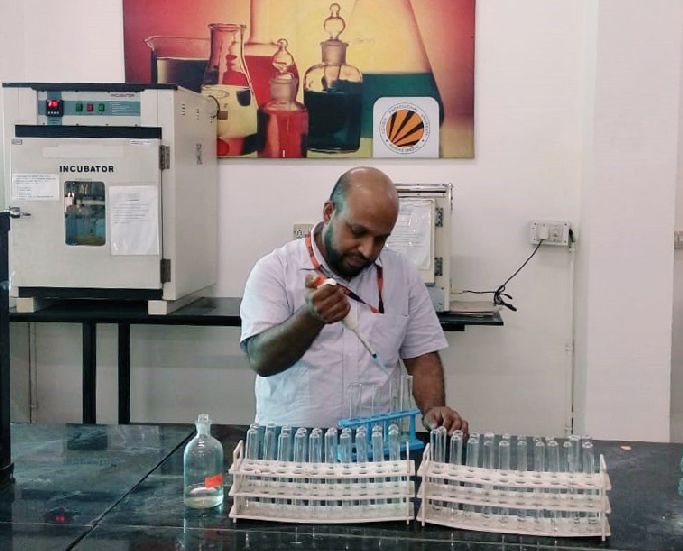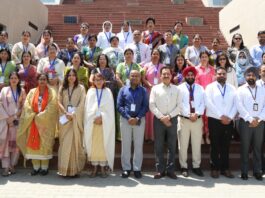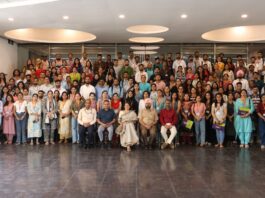Science & Engineering Research Board, Department of Science & Technology (SERB-DST), Government of India has awarded research grant of Rs 48 Lakh for Lovely Professional University (LPU) Scientist’s diagnostic research on ‘Fungi’. LPU scientist Dr Mohammad Amin-ul Mannan from the Department of Molecular Biology and Genetic Engineering at LPU School of Bioengineering and Biosciences has been endeavoring to make “early & easy detection of fungal diseases.” SERB-DST has upheld the research utmost important for the global society. Prior to this, early and easy detection of harmful fungus inside the human body had never been so easy. Dr Amin and his team have readied an economical ‘Dip-Stick Method’ to diagnose how much harmful ‘fungi’ is inside the body of the concerned patient.
In fact, there are millions of different fungal species; however, only negligibly (almost 300) counted (almost 300) of these are harmful to health and make people sick. As fungal diseases can affect anyone, so learning about them can help patients and doctors treat diseases caused by them. Both can recognize the erupting symptoms of a fungal disease, and this early and easy identification is sure to help prevent serious complications later on. So, following the old-gold saying ‘Prevention is better than cure’, LPU scientist is working on the scientific study of the nature, origin, progress, and causes of fungal diseases extending Indian Pathology.
Sharing that “Early diagnosis and proper treatment for ‘Fungal infections’ are essential”, Dr Amin elaborates scientifically, “Now diagnosis of fungal diseases caused by fungi including Candida, Aspergillum, Cryptococcus will be easy and a matter of minutes. Presently, there are 800 million people worldwide that are affected by fungal diseases. The opportunistic pathogens (disease causing fungi) reside in human skin, gastrointestinal tracts, and mucosal layers. No doubt fungi microbes are mostly friendly but due to lower immunity caused from indiscriminate use of antibiotics, cancer or immunity-suppressive drugs, these microbes turn pathogenic.”
Dr Amin further shared, “In India, 1-2 people of 1000 in hospitals die of fungal diseases. Recent evidence has highlighted that harmful fungi living in the human body cause life threatening diseases. In addition to creating blindness, asthma and other major health problems, the mortality rate for these diseases is approximately 30-60 percent. It is estimated that fungal infections take more than 1.3 million lives each year worldwide. Affecting all age groups, fungal diseases harm approximately 25% of the total population in India. Seeing such a grim situation, now, I and my team of researchers have vowed to bring forth positive results in reducing the death toll and severe disability that fungi can cause.”

Dr Amin has also highlighted that a new technology for early detection of the fungal micro biome is being developed in an array platform. His team has envisioned that this tool can be used to screen and advise therapy to both healthy and immuno-compromised individuals. For this, following ancient India traditions, he is researching on certain plants from Himalayan regions to secure problem corrective medicines.




